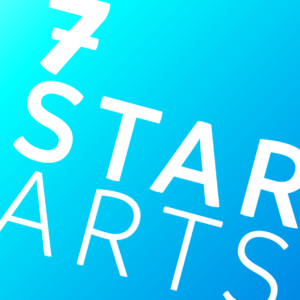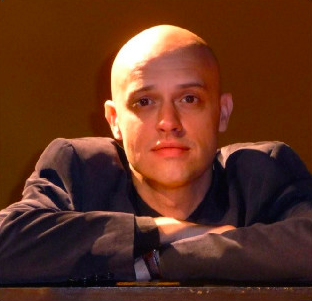Ahead of his appearance with the Walentin Trio at Craxton Studios on 16 March, violinist Niklas Walentin talks about his influences and inspirations, significant teachers, repertoire, performing and more……
Who or what inspired you to take up the violin and pursue a career in
music?
I was first introduced to the violin and classical music “live” when attending a chamber music concert in Germany at the age of 6. The programme included, among other pieces, the famous C major string quintet by Franz Schubert. It had an immense impact on me, and I startet leaning the violin later the same year. At the age of 10, and not having found much interest in school, I decided to stay in the world of music into which I had been so luckily invited. At the same time, I had already been participating successfully in many competitions and masterclasses, so that taking the decision of becoming the best violinist I could possibly become, was not so far away.
Who or what have been the most important influences on your musical life and career?
The number of people and their endless support it has taken makes up a list longer than one could possibly imagine. I know of very few careers where from childhood, one is in the need of such strong and continuous support. But naturally, every member of my family is the initial answer. Then, my teacher and mentor, Søren Elbæk, who both as a violinist and musician has inspired me tremendously, but also his personality and as a human being has been a great support through my youth.
What have been the greatest challenges of your career so far?
It is difficult question to answer, as there are so many different things I have encountered at different times in my career. But looking back, I would say the most challenging thing has been to accept how the world of classical music works as a business. Even though it sounds quite harsh, and in some way ruins the romantic image of this wonderful world filled with so much incredible music, musicians, composers and so forth all need to make a living. To me, having slowly experienced how all that works, and to accept in some situations, that even though one has done ‘the job’ exactly as intended to highest standards, and all the work it takes around building up a career has been done, still sometimes, doors just simply won’t open. And that has been quite a challenge.
Which performance/recordings are you most proud of?
The perfect answer would and should of course in many ways be them all. Yet there are some I am particularly happy about. One of them was by debut concert in Carnegie Hall two years ago: it was a childhood dream come true, and a truly magical evening. I was at the time releasing my second album with four grand works for violin by Carl Nielsens, and even though my fourth album is on its way with my piano trio, I am still very proud of the recording of Carl Nielsen.
Which particular works do you think you play best?
I have spent a lot of time with Carl Nielsen and his music. He is definitely a composer woth whom I have strongly identified. I have a passion for playing solo violin, and have many plans of doing much more in the future. But next to my solo career, I have a very busy ensemble with my piano trio, Trio Vitruvi, and this spring I will return to Carnegie Hall together with my colleagues. We will be releasing our first album together, with the second piano trio by Schubert, and his music; being some of the first classical music I ever experienced, it has a very dear place in my heart.
How do you make your repertoire choices from season to season?
It is far from easy to choose, and a lot of the time, other circumstances do the choosing for me. But when I have my hands totally free, I choose pieces I simply can’t help but play. There comes an incredible and very naturally overflow of passion when performing pieces that you simply must play, and this is something that I feel always transmits to the audience very positively.
Do you have a favourite concert venue to perform in and why?
The Weill Recital Hall in Carnegie Hall is unique. But I have to admit that I have fallen equally in love with Wigmore Hall. Also, the Mariinsky Theater in St. Petersburg is to me, when performing violin concertos, a gem!
Who are your favourite musicians?
I would say the violinist Henryk Szeryng has had a very big influence on my playing. But my chamber music professor, founding member of the Alban Berg quartet, Hatto Beyerle, is a musician to whom I very much look up. Danish jazz violinist Svend Asmussen is also very high on the list!
What is your most memorable concert experience?
Lately it was when I was at the Verbier Festival, I had a free evening to attend a concert with Ana Chumachenko, who together with friends performed Schubert’s String Quintet in C. I had not heard the work for many years, and I was in tears more or less throughout the piece.
As a musician, what is your definition of success?
To remain yourself throughout your career and not to be confused by the many who want their influence to show through your character and way of playing. I have had many faces in my life, where I have been torn between two parties, and their way to do things would be the best. But when I finally learned to take the final decisions myself, a true sense of freedom followed.
What do you consider to be the most important ideas and concepts to impart to aspiring musicians?
One thing which can be difficult to impart is the experience of the life itself as a musician. How to overcome issues of not undestanding why things don’t come your way when you work hard, or to restrain the pressure of nerves when performing at a high level. So much time is spent on learning how to play the instrument and the pieces, but I find advice for when you are actually out there on your own, and you need to show your very best to an unfamiliar audience that demands the highest level of quality, is rarely given enough.
Niklas Walentin performs with Alena Walentin (flute) and Viv McLean (piano) at Craxton Studios, Hampstead on Friday 16 March in a programme featuring Franck’s Sonata in A for violin and piano. Further details and tickets here www.7stararts.com/event/walentin-trio-craxton-studios/





